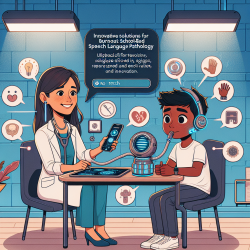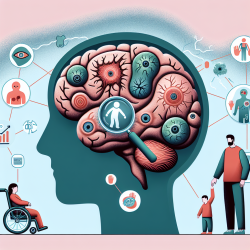Introduction
In the realm of mental health services, the Syrian conflict presents unique challenges and opportunities for growth. The study "Implementation of mental health services in conflict and post-conflict zones: Lessons from Syria" provides invaluable insights into delivering effective mental healthcare in such tumultuous environments. For practitioners, understanding these lessons is crucial for improving therapeutic skills and outcomes, especially for children affected by conflict.
Key Lessons from the Syrian Experience
The Syrian conflict has highlighted several critical areas for mental health practitioners:
- Collaboration with Nonprofessionals: Due to the shortage of trained mental health professionals, collaboration with nonprofessional personnel is essential. This approach can be adapted to various contexts, allowing for a broader reach and more culturally sensitive care.
- Language and Engagement: The use of psychological and diagnostic terms can increase stigma. Instead, asking about "suffering" or "challenges" can foster better engagement and reduce stigma.
- Resilience through Cultural Sensitivity: Recognizing the importance of dignity, religious acceptance, and faith can enhance resilience and engagement in therapy.
Implementing These Lessons in Practice
Practitioners can incorporate these lessons into their work by:
- Training nonprofessional personnel to extend the reach of mental health services.
- Using culturally sensitive language that resonates with the client's experiences and worldview.
- Integrating cultural and religious contexts into therapeutic practices to support resilience.
Encouraging Further Research
While the lessons from Syria provide a strong foundation, ongoing research is necessary to adapt these insights to different contexts. Practitioners are encouraged to explore further research opportunities to refine their approaches and improve outcomes for children in conflict-affected areas.
Conclusion
The Syrian conflict underscores the importance of adaptable, culturally sensitive mental health services. By implementing these lessons, practitioners can enhance their skills and provide more effective care. To read the original research paper, please follow this link: Implementation of mental health services in conflict and post-conflict zones: Lessons from Syria.










